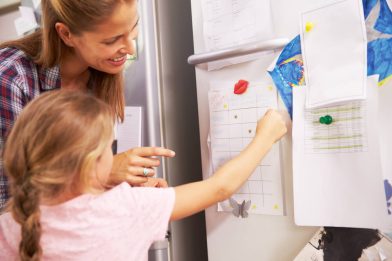How to help the child to go through the divorce of their parents

When a couple gets divorced, they start facing many social, economic, and other issues they have not heard of before. Nevertheless, the main problem for parents is how to explain to their child that mom and dad will no longer live together. They will need to find a way to minimize the consequences of divorce on the psychological well-being of the child.
In this article, you will find answers to these and many other questions.
 |
Install the Findmykids appAt this difficult time, surround your child with gentle care, not excessive control! |
|
 |
 |
|
Contents:
- Should marriage be saved because of the child?
- What is the perception of the child on parental divorce?
- How to tell a child about a divorce?
- Parenting mistakes
- How to help your child to go through a divorce?
- What do psychologists recommend?
- A new member of the family
Should marriage be saved because of the child?

Prostock-studio/Shutterstock.com
Spouses ask themselves this question in the situation where their relationship starts lacking mutual understanding and love, quarrels become more frequent and thoughts of divorce start visiting them more often.
Some make a choice in favor of the child, as they do not want to injure their psyche and continue living together, but they no longer live as partners. Others decide to file a divorce and feel guilty that they could not ensure a happy childhood for their child, where mom and dad love each other and take care of their baby.
Dear parents, please remember that keeping a marriage makes sense only when parents maintain mutual respect towards each other and cope with their contradictions. Otherwise, the never-ending fights and the life in an atmosphere of hatred and irritation, will all leave a deep scar during the phase of the mental development of the child.
Normally, children do not go through everything that happens between parents with ease. They surely feel that mom and dad no longer love each other and do not want to be together.
Therefore, before answering this question, think about whether you and your spouse will be able to maintain an atmosphere of acceptance and mutual respect in the family, or will it be better for you to get separated and to live away from each other.
What is the perception of the child on parental divorce?

Prostock-studio/Shutterstock.com
How do children go through the divorce of their parents?
What would you feel when a person whom you love so much, suddenly leaves you?
Remember: children are not only experiencing the divorce of their mom and dad but also, figuratively, their own divorce with one of the parents and a loss.
Children do not suspect that family relationships depend not only on the love of parents for their children but also on the love and respect of spouses towards each other. They worry not only because the father leaves home, which is caused by quarrels between the parents, but also due to the fact that the son or the daughter consider themselves not to be valuable enough for the father since he cannot stay because of them.
Adults are also familiar with this feeling when, after parting with a loved one, we ask ourselves: maybe I did something wrong, maybe I turned out to be not good enough for him?
Here is what a child whose parents got divorced, feels:
- sadness («How sad am I without a dad. Now nobody plays dinosaurs with me and no one goes to the park with me on weekends»);
- anger at the parent who, in their opinion, is to blame for the divorce («It’s the mother’s fault that dad abandoned us, she was constantly screaming at him»);
- the feeling of guilt («Dad doesn’t live with us anymore because I behaved badly and I broke some toys. If I was to behave well, maybe this would make dad come back?»);
- resentment («I thought that dad loved me and that he would never part with me, but he left»);
- fear and anxiety («If mom no longer loved dad and sent him out of the house, maybe tomorrow she will stop loving me too and will kick me out as well?»);
- shame («What will I say in kindergarten or at school when they ask me about dad now that we don’t live together anymore?»).
The combination of these destructive emotions will lead to the fact that children start feeling small, helpless and unable to alter the circumstances.
The absence of a visible reaction (the child does not cry, does not strive for loneliness, remains calm and balanced on the surface) does not mean that they are not suffering from the divorce of their parents. Sometimes it means that all negative and painful feelings are hidden deep inside, and the longer they stay there, the harder it will be for the child to cope with them.
Is there a ‘best’ age of the child for their parents to get divorced?

Prostock-studio/Shutterstock.com
Many parents believe that the ideal age for the child to go through a parental divorce is adolescence. At this age, the son or the daughter can analyze the circumstances autonomously and take the stance of one of the parents.
In fact, there is no such age for the child when the divorce of the parents would not knock them out and would not deprive them of confidence in their future life.
Parental divorce is a difficult and painful event for the child. Children of different ages experience it in their own way.
- Toddlers under 3 do not understand that mom and dad are getting divorced at this age, but they can feel it judging by the mood of their parents and the tension within the family. They can begin to act up, cry for no reason, sleep or eat badly. A regression in the development may also begin to manifest itself with the child ‘forgetting’ all the acquired skills, such as eating with a spoon or using the bathroom.
- From the age of 3 to 6 years old, children are most affected when one of the parents leaves the family. They often blame themselves and think that dad or mom just stopped loving them. Children often feel sad, seek solitude, and cry. Aggressive behavior may also appear. It may be expressed towards one of the parents or towards peers.
A child whose parents are on the verge of a divorce may suddenly become seriously ill so they become surrounded by the love and attention of both parents again. This is how the protective mechanism of the child’s psyche works, protecting them from unwanted changes in life.
- Children of the age between 6 and 13 years old, whose parents are separated, often hide this fact from friends and teachers and feel ashamed for being raised in an incomplete family. A large proportion of such children experience a lowered academic performance, conflicts with peers, anger, and resentment towards their parents due to issues in their family. Children start to be untruthful, rude, and unresponsive to the requests of adults.
- In adolescence, parental divorce overlaps with the child’s teenage crisis. A son or daughter can already understand the real underlying reasons for the divorce of their parents and still welcome a new family member, a stepfather or stepmother, with hostility.
How to tell a child about a divorce?

Prostock-studio/Shutterstock.com
- Take the age of the child into account. Psychologists do not recommend telling children under the age of three about the divorce. A preschooler can be told that mom and dad will no longer live together, but despite this, dad loves them and will be seeing them regularly. Teenagers can realize that the situation in the family is complicated. Therefore, they can be informed that parents can no longer manage to respect and understand each other, therefore, it is better if they get separated.
- Choose the correct moment for the conversation, when you and your child are not in a hurry and nothing distracts you. It is better for both parents to take part in the conversation.
- Do not tell your child stories about their dad who went on a trip to the North pole, flew to the Moon, etc. Firstly, because the child will still subconsciously feel that you are lying to them. This will negatively affect their trust in you. Secondly, this secret will surely be revealed one day, and it will be twice as difficult for the child to find out about their dad left them and, simultaneously, about the untruthfulness of their mother.
- This seems absurd, but many parents in a state of anger, begin to ask the child: «So who do you love more? Who will you stay with: mom and dad?» Do not put your son or daughter through such psychological trauma. The child loves both parents equally and is shocked to find out that they will no longer live together. And at this moment, their father and mother make them face a choice that should be their own responsibility and should not become a burden for a child with an already naturally fragile psyche.
- Do not try to argue with your spouse during this conversation. Leave all insults and discontent for each other, for later. At this moment, it’s important to inform the child of your breakup so that it does not cause them psychological trauma for the rest of their life.
- It is unnecessary to inform the child that «dad fell in love with another woman». Use simple phrases that are easy to understand, explain that mom and dad will no longer live together and that they will now have separate lives, but they both still love their child, they care and worry about them.

Prostock-studio/Shutterstock.com
- Do not use the word «divorce» when talking to a preschooler or a primary school student as they may not always correctly interpret its meaning.
- Be prepared that a child will immediately have a lot of questions after they find out about your divorce. For them, this situation is new and unknown, as they don’t know what awaits them in the future.
- Together with the spouse, convince the child that it is not them and not their actions that have caused a divorce, free them of any guilt. Explain that mom and dad still love them and will always love and care for them, even if parents will no longer live together.
- The child’s reaction to the announcement of a divorce may differ: anger, tears, hysteria, or on the contrary, a total absence of a reaction. React calmly, let the child take their time to be alone or show them your affection by kissing and hugging.
- Even if you and your spouse approach the topic of the divorce correctly, the child will still go through trauma associated with your separation. Your task is to make this experience less painful and hard on the child and to minimize the traumatic effect on their psyche.
Parenting mistakes
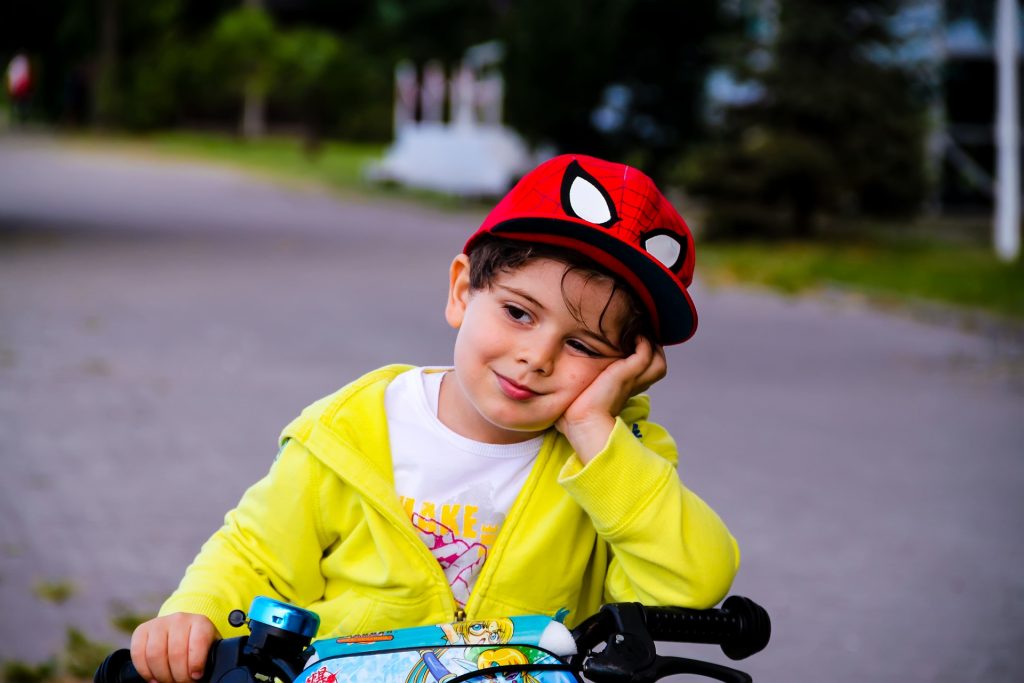
Prostock-studio/Shutterstock.com
You’ve informed your child that you are getting divorced, that your marriage is officially over, and that now, you and your partner live a life of their own. At this stage, most of the parents begin to make very serious mistakes that affect their child.
| Parenting mistakes | Typical phrases | The reaction of the child |
| 1. Negative statements about the spouse |
«Your father is a bad person, he left us. He replaced us with a different woman and another child».
|
A personal insult to the child |
| 2. Using the child as a «detective» |
«Go and see dad, you will tell me later everything he told you and you’ll tell me who does he live with now».
|
The child learns to manipulate, to lie and to hide the truth |
| 3. Accusing the child of an unhappy marriage |
«I got married to him only because of you!»
|
The child feels that no one needs them and that they are the reason that parents got divorced |
|
4. Drawing comparisons between the child and the spouse in a negative way
|
«You’re just like your father! Rude, deceitful and despicable!» | The child feels guilty to be like his father |
|
5. Manipulating the child with meetings with their father |
«If you get an F grade, you will not be seeing your dad this weekend!» | The child learns to manipulate and blackmail |
|
6. A veto on seeing other relatives
|
«Because dad has left us, you will not be seeing your grandparents either». | The child learns to break family bonds |
|
7. Replacing a dad with a stepdad
|
«Meet Peter. We are now going to live all together. You can call him daddy». | The child experiences the feelings of hatred and hostility towards a new member of the family |
|
8. Transferring your worries to the child, attempting to control their feelings
|
«You should stop loving your father. If he left us, that means that he doesn’t love neither of us». | The child becomes anti-social and lives in their «own» world |
Dear parents, don’t forget that by making these mistakes, you destroy the already shaky world of the child, depriving them of the opportunity to go through the divorce of parents without serious psychological trauma.
 |
Install the Findmykids appAt this difficult time, surround your child with gentle care, not excessive control! |
|
 |
 |
|
How to help your child to go through a divorce?
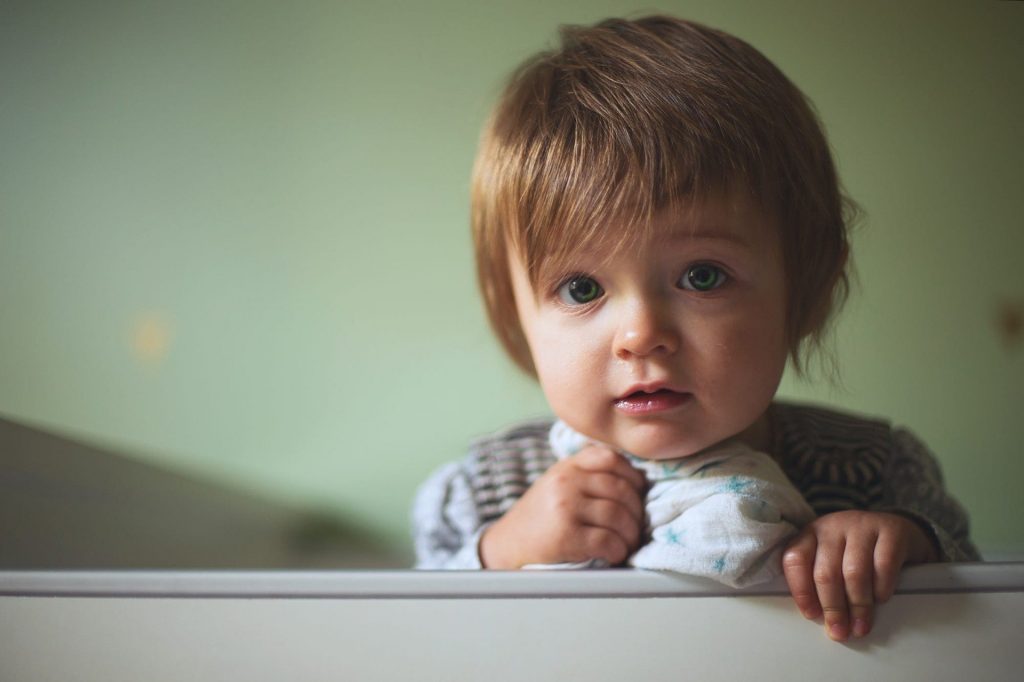
Early age
Parents should focus on maintaining their child a normal pattern of sleep, feeding, and walking, as well as good communication within their family. In no event you should argue in the presence of the child, nor should you yell at each other. Otherwise, in the future, fears and neurotic disorders can start manifesting themselves in your child.
Preschool-age
To help a preschooler to go through the divorce of their parents, they need to be surrounded by love, care, and attention. It is also important to maintain the usual timetable of the child, communication with relatives and friends as well as trips to grandparents. During this time, try to add more joyful and interesting events into your child’s life – trips to the circus, the puppet theater, to the park, etc.
Give your child the opportunity to express their feelings and worries in conversations, drawings, and fantasies.
School and adolescence
A mutual relationship of trust with both mom and dad is highly important for the child at this age. A child should not be afraid to share their thoughts and feelings with you. Give them your love and support, but do not try to control kid’s life excessively.
What do psychologists recommend?
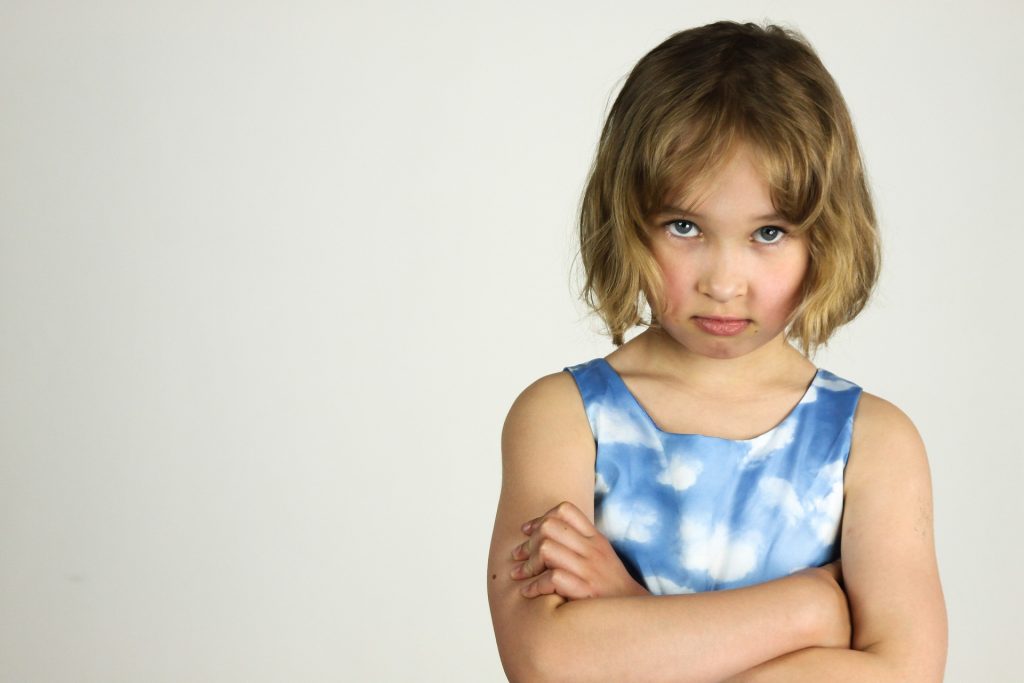
Prostock-studio/Shutterstock.com
- Try to maintain respect for each other after the divorce. Despite the fact that now everyone has a life of their own, you will have a child in common forever. Do your best for their happiness and prosperity!
- Pay attention to changes in your child’s behavior: problems with sleep and appetite, frequent colds, poor academical performance, conflicts with peers or aggressive behavior. All of these suggest that your son or daughter is experiencing severe stress. If you cannot cope with the situation yourself or don’t know what to do and how to help your child, seek professional assistance from a psychologist.
- Discuss the schedule of meetings of the child with your ex-spouse in advance, and, if possible, also of your joint meetings. Try not to alter the child’s usual timetable and daily routine.
- Parents should keep a similar parenting style. What is allowed by the mother should not be forbidden by the father and vice versa.
- Try not to display aggression towards the child and not to let out all the negativity on them. It is hard for you to go through a divorce, and it is twice as hard for your child, because their world has collapsed, and they now have to rebuild it. This is a very difficult task for a child’s psychological well-being.
- Spend more free time with your child: go on walks, play together, visit new places. But if they want to be alone, give a kid that opportunity.
- Do not discuss your ex-husband with other people in the presence of your child. Neither by phone nor in person.
Dear Moms! After divorcing your husband, do not make the process of raising a child, your main goal in life. Your life continues. Talk to friends, go to theaters, cafés, make new friends. Do not prevent the child from growing up and do not «strangle» them with your excessive care.
 |
Install the Findmykids appStop being a helicopter parent to help your child grow up a successful, balanced person |
|
 |
 |
|
Divorce is not an easy event for all family members, especially for the mother. Women often have to face a number of problems on their own during this time. Under the weight of responsibilities and worries that have fallen on you, try not to forget that you are not alone, that you have a child, parents, friends, acquaintances. Don’t hesitate to ask for help if you feel that you cannot cope with everything at once.
A new member of the family

Prostock-studio/Shutterstock.com
Mom and dad got divorced, and after some time new people may appear in their life, people with whom they would want to form a new family.
How the child will react to this, depends on how much time has passed after the divorce, as well as on the behavior of everyone involved in this situation.
To begin with, an addition of a new family member implies additional stress for the child. Therefore, the more time has passed after the divorce, the easier it is for the child to get used to his stepfather or stepmother.
Below are the main points that require extra attention when forming a new family:
- Remember: the child did not personally ask for a new dad or mom, this is your choice. Therefore, be prepared that your son or daughter may be hostile to your companion. Give your child some time to get used to them.
- Never ask your child to call a stepfather «dad» or refer to him like that. The child has a father, and your new spouse should not be a replacement for him. It is better if he becomes a friend, an older comrade. Over time, the child can make such a decision by themselves, but this should not happen under your pressure.
- It is better if a new family member enters your life gradually, about six months to a year after the divorce. If this is impossible due to certain circumstances (for example, when you and your child move to live with the stepfather right after the divorce), then come to an agreement on his gradual involvement in the process of raising the child.
Dictating your requirements to your child as well as introducing new restrictions and prohibitions, is a direct way to increase hostility, lead to an aggressive attitude or even hatred of the mother’s new companion. Especially if the child is a teenager. Such a situation can lead to running away from home, bad behavior and a worsened relationship of the child with their family.
It is impossible to predict how the divorce of parents will affect the child as well as what would their future fate be. The child must make sure that he is able to live in this new world, where mom and dad are not together, and be happy, even under such circumstances.
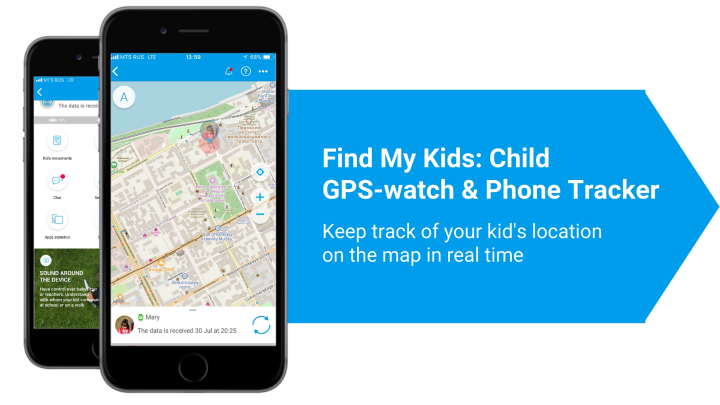
Prostock-studio/Shutterstock.com
Проверьте электронный ящик

















